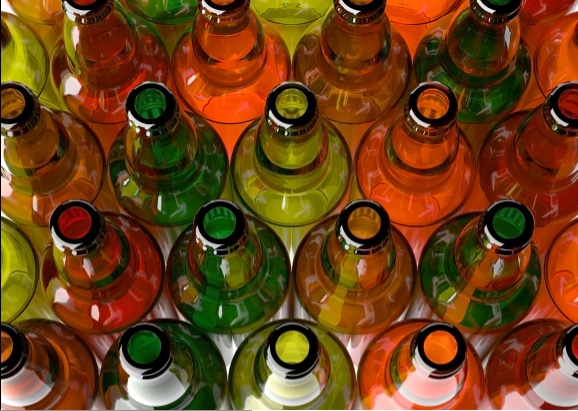GRC: 93% of Consumers Expect to Be Able to Recycle Glass
Here are some key takeaways from the Glass Recycling Coalition’s 2018 survey results.

Ninety-three percent of residents and consumers still expect to be able to recycle glass. That’s according to the second annual survey by the Glass Recycling Coalition (GRC), which queried more than 300 public sector representatives, top glass industry professionals and materials recovery facility (MRF) operators in an open survey from May to June 2018.
“It is not surprising that 93 percent of residents and consumers expect to be able to recycle glass,” explains Jim Nordmeyer, vice president of sustainability for Owens-Illinois and GRC leadership. “This emphasizes glass as a core recyclable. Glass recycling concerns among public sector respondents declined from 65 percent in 2017 to 54 percent in 2018.”
The survey also revealed important differences in perceptions, trends and concerns among these groups. Here are some of the key takeaways:
Public sector representatives were less concerned than they were last year about glass recycling conditions, and concern decreased by 14 percent. Public sector respondents were also significantly less concerned about glass contamination and end markets for recycled glass compared to last year. MRFs and glass industry representatives’ concerns, however, increased by 14 percent over last year.
Influenced by poor current market conditions for all recyclables, increased contamination and rising quality standards, 54 percent of public sector respondents named enhanced consumer education as their top program change. More than 33 percent listed no program change over last year, and nearly 19 percent responded that they have changed their list of acceptable items.
Respondents facing glass recycling challenges say that information on types of glass end markets, case studies of local governments making glass recycling work and information on grant funding for glass recycling would be helpful tools.
Public sector respondents named resident satisfaction, landfill diversion and sustainability goals as their top priorities. While public sector and glass industry respondents reported that people’s desire to recycle glass is a primary reason glass should be recycled. MRF respondents did not reveal a similar pressure in decision-making to act on customer’s desires.
Nearly 80 percent of total respondents—an increase of 30 percent over 2017 findings—believe that cost for collecting and processing all recyclables, not solely glass, should be shared among manufacturers, haulers, the public sector, MRFs and end markets.
Transportation, price paid per ton and highest and best end use were the top three determining factors of where glass was sold by MRFs. More than half of public sector and glass industry respondents facing glass recycling challenges expressed interest in public-private partnerships and grants to improve glass recycling and help them achieve their goals.
Nordmeyer adds that the top concern among MRFs and glass industry professionals was contamination—this was also a chief concern among public-sector respondents.
“GRC provides many resources to communities, MRFs and the glass industry to expand glass recycling opportunities,” he says. “Since glass markets are mainly domestic, solutions will vary based on available resources and infrastructure. It is clear that glass recycling is a priority for residents and consumers and a priority for the public sector to meet residents’ expectations.”
The coalition will preview key survey results during a webinar, “How Commercial Glass Recycling Programs Can Thrive,” on Thursday, August 16, at 2 p.m. ET. Download the full survey report and register for the webinar here.
“For the past two years, GRC has offered several important resources for the glass recycling value chain to make glass recycling work, including nationally recognized subject matter expert webinars, trend monitoring, best practices and case studies,” said Richard Hoch, Diageo and GRC leadership and founding GRC member company, in a statement. “The GRC also offers a decision-making tool and maps to glass infrastructure in response to local needs.”
About the Author(s)
You May Also Like




